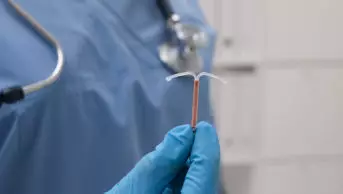
Shutterstock.com
NHS England is funding the establishment of 42 community pharmacy clinical lead posts across the country “to support scaling and embedding of new clinical services” within the sector, it has said.
In a letter sent to NHS regional directors and regional chief pharmacists on 2 February 2022, and seen by The Pharmaceutical Journal, NHS England states that each integrated care system (ICS) will be able to recruit into these positions from April 2022.
The posts will be at ‘Agenda for change’ (AfC) band 8c, meaning the new clinical leads will be paid up to £75,874 per year, according to the current annual pay scales.
The salaries will be funded by the Pharmacy Integration Programme for two years, after which ICSs will be expected “to make their own permanent arrangements to continue the integration and expansion of community pharmacy clinical services”, the letter said.
In addition to supporting the embedding of new clinical services, the letter said the clinical leads will work closely with NHS trusts in their ICS “to embed referral routes and support an integrated approach to implementation of community pharmacy clinical services”.
NHS England’s letter added that “new, permanent AfC 8d regional pharmacy integration lead posts have been established, reporting to the regional chief pharmacists and recruitment for these posts is underway”.
These posts — paid up to £90,387 per year — will also be supported with two years’ worth of funding through the Pharmacy Integration Programme, after which “regional budgets will take over”.
Plans for ICSs to recruit community pharmacy integration leads were initially shared by NHS England in October 2021, when it was announced that those holding the roles would be responsible for leading local implementation of community pharmacy clinical services.
In a tweet posted on 2 February 2022, David Webb, chief pharmaceutical officer for England, said the clinical lead roles would “further support implementation of community pharmacy clinical services for patients”.
However, the Company Chemists’ Association (CCA) said on 2 February 2022 that, while it welcomed the additional roles, “efforts to speed up introducing the new clinical services need to be supported with sustainable funding and material actions to increase workforce numbers in the sector”.
“We are concerned that, without the funding and people in place, the desired volume of necessary services cannot be delivered, no matter how well coordinated,” the CCA said.
Thorrun Govind, chair of the Royal Pharmaceutical Society’s (RPS’s) English Pharmacy Board, said it was “great to see the NHS investing in local and regional pharmacy leadership to support pharmacy integration and help make new services a success, as well as ensuring community pharmacy integration into wider ICS plans for the future”.
“These new roles must now get the time, support and resources they need to have an impact and deliver better outcomes for their local population, and we encourage pharmacists to apply for these positions,” she said.
“Our recent recommendations developed with our ICS Pharmacy Leads Forum highlight the key role of pharmacists in driving collaboration across the health service, enhancing patient care and supporting medicines optimisation.”
What are integrated care systems?
Integrated care systems (ICSs) were developed out of sustainability and transformation partnerships (STPs), which were formed in 2016 as local partnerships across NHS organisations and tasked with developing plans for the future of care locally.
In the ‘NHS Long Term Plan’, published in January 2019, it was announced that ICS would be set up covering each region of the country by April 2021 to “bring together local organisations in a pragmatic and practical way”.
In February 2021, an NHS white paper set out plans to give ICSs legal status, taking on the functions of clinical commissioning groups (CCGs) and embedding a “duty to collaborate” between the NHS and local authorities.
The subsequent Health and Care Bill, which was laid before Parliament on 6 July 2021 and is currently passing through the House of Lords, expanded on these plans.
It states that each ICS will be led by an integrated care board (ICB), which will take over the commissioning functions currently held by CCGs — with the latter being abolished.
This change was initially planned for April 2022 but has now been postponed until July 2022 to “allow more time for the remaining parliamentary stages and to enable organisations to manage their more immediate pandemic response priorities”, NHS Digital said in an update published on 5 January 2022.
In October 2021, the Pharmaceutical Services Negotiating Committee and other primary care bodies wrote to the parliamentary committee scrutinising the Bill calling for pharmacists and other primary healthcare professionals to be represented on ICBs.
Read more: Collaboration not competition: the NHS masterplan to keep patients out of hospital


